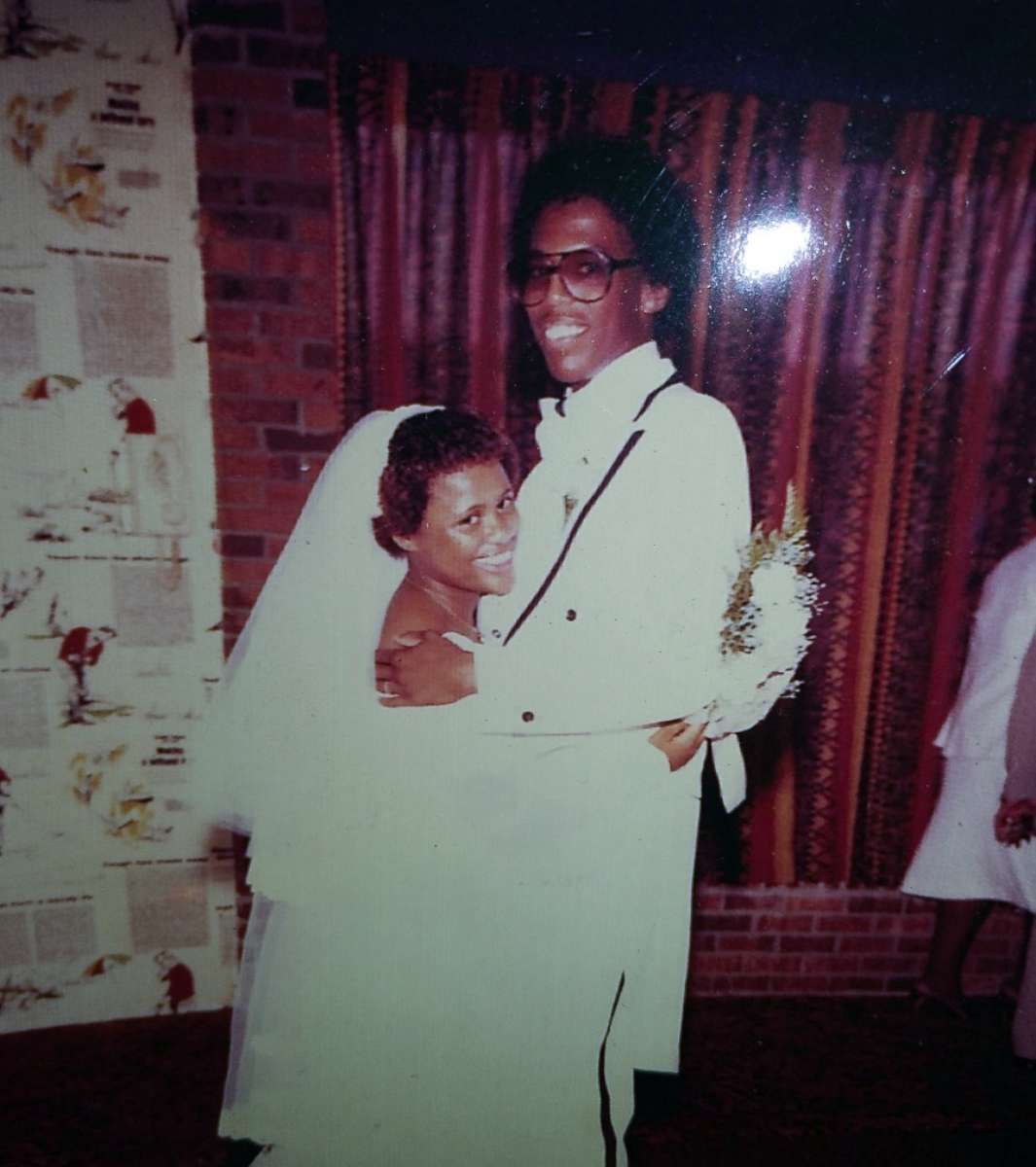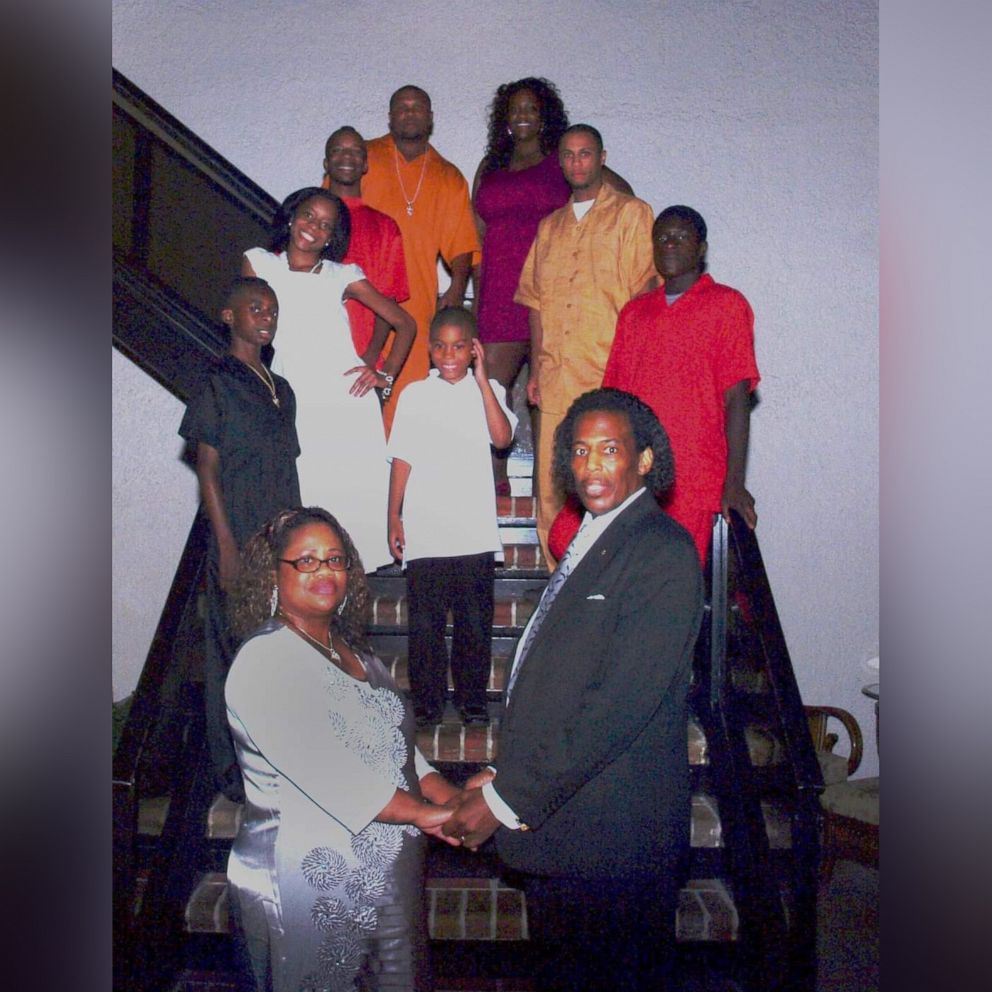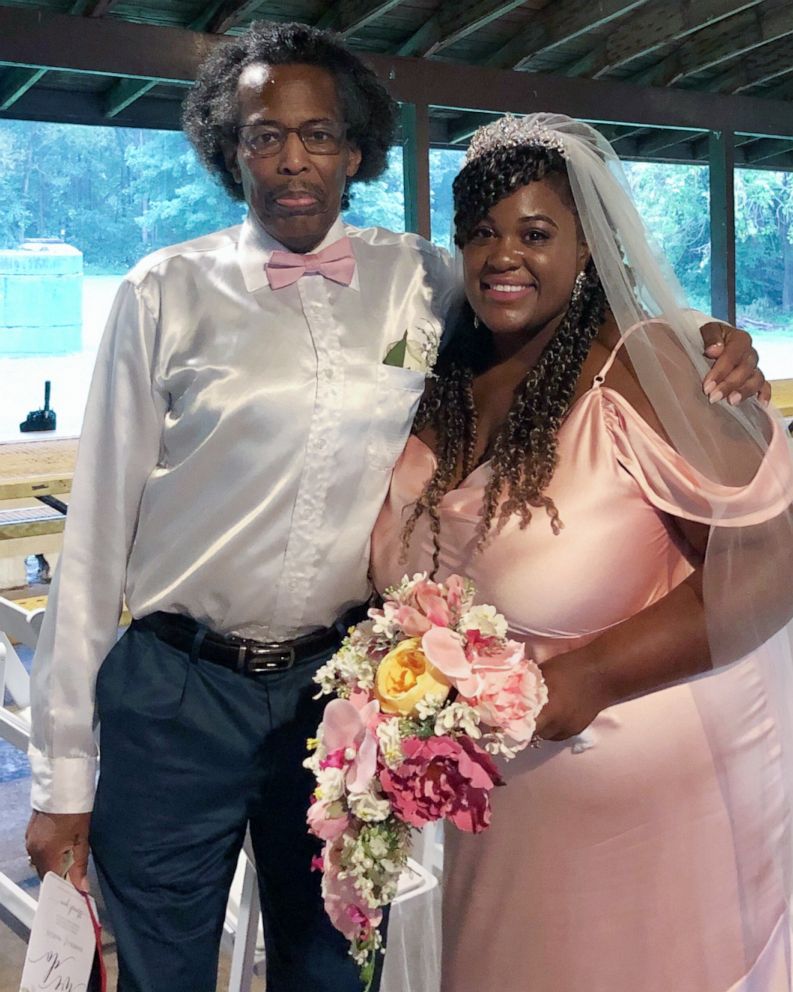Father of 8 was set to get 2nd vaccine dose, but contracted COVID-19 and died
Gordon Ballard, 65, died on May 17, 2021, two weeks after he tested positive.
This Father's Day will be an especially difficult one for many of the more than 600,000 American families mourning the death of a loved one to COVID-19.
Among those is the Ballard family in North Carolina, grappling with the loss of their patriarch.
Gordon Ballard, a devoted husband and father of eight who pushed through a lifelong illness to provide for his family, died of COVID-19 on May 17, 2021, his daughter said.
The 65-year-old tested positive two weeks earlier, on May 3 -- the same day he was set to get his second vaccine dose.
Dedicated dad
As a child in upstate New York, Ballard had a unique career in mind: funeral director, one of his daughters, Sharena Ballard-Hart, told ABC News.
He attended the Simmons Institute of Funeral Service in Syracuse before interning at a funeral home in Rochester. He was there working a funeral when he fell for the decedent’s daughter, Sandra.
Gordon and Sandra married and would have celebrated their 40th anniversary this July, Ballard-Hart said of her parents.

The Ballards’ road to parenthood began quickly. When Sandra’s mother died, the young couple took in Sandra’s 4-year-old brother, Quinton, and raised him as their own son.
"I just remember them picking me up with my suitcase, taking me home. At the time we lived above a funeral home," the Ballards' eldest child, Quinton Wilburn, told ABC News.
After welcoming Sharena and her brother Marcus, the Ballards decided to become foster parents and adopted five children.
As a father of eight, Gordon Ballard was a hard worker and "very generous," Wilburn said.
"He watched 'Jeopardy' faithfully every single day" and wanted his family to think "he knew everything," Ballard-Hart added.

He was also protective of his wife. Whenever Ballard had a health battle, he was always more concerned about Sandra, Ballard-Hart said.
Gordon Ballard was born with sickle cell anemia -- a disorder in which there aren’t enough healthy red blood cells to move oxygen through the body -- and suffered one or two crises per year, his daughter said.
Despite the pain, he kept his career going, as a hospital autopsy technician by day and working at different Black-owned funeral homes by night.
"He would miss some holidays with us to work," Sandra Ballard said.
Never once did he complain.
"Everyone always asked him, 'How do you go to work with this illness?' And he said, 'I have to go for my family,'" Wilburn recalled.
"Never once did he complain," Wilburn said.
But Gordon Ballard’s sickle cell pain flared in the winter months, so his doctors recommended he move South, prompting the family to relocate from New York to North Carolina in 2008.
Gordon Ballard had weekly treatments at Duke University Hospital’s sickle cell clinic as well as monthly blood transfusions, Ballard-Hart said.
'Every day in fear'
When the pandemic began, "my dad spent every day in fear" because he felt certain he would die if he contracted COVID-19, Ballard-Hart said.
But as a funeral director, he wanted to help. When a relative died during the pandemic, he and the family piled into a van to drive to New York so he could organize the funeral, Ballard-Hart said.
He was also scared of the vaccine, Ballard-Hart said. Gordon Ballard's doctors implored him to get it -- and he received his first dose on April 5, she said.
The father of eight was scheduled to get his second dose on May 3. But instead, on that day he tested positive for COVID-19.
Five other family members tested positive for COVID-19 within days: Ballard-Hart and her 2-year-old daughter, Wilburn, Sandra Ballard, and the Ballards' teenage son.
Ballard-Hart, her parents and her teenage brother all had one vaccine dose when they tested positive, she said.
Wilburn said he had been fully vaccinated since February but still suffered aches, nausea and struggled to breathe -- all the while wishing he could be by his dad’s side.
(COVID-19 infections are exceedingly rare after full vaccination, according to the Centers for Disease Control and Prevention. Even when these rare breakthroughs happen, the vaccines are still overwhelmingly effective at protecting people from being hospitalized or dying.)
Gordon Ballard was hospitalized on May 3 and was strong enough to talk to his family a few times during his two-week stay.
But then he quickly took a turn for the worse.
I just screamed and cried and asked God, 'Why?'
On the first day Ballard-Hart tested negative for COVID-19, she said a doctor told the family her father wouldn’t make it through the night.
"I was very emotional," Ballard-Hart said, holding back tears. "I ran outside and I just screamed and cried and asked God, 'Why?' My neighbors heard me. Some came over and prayed with me."
Gordon Ballard died on May 17 at Duke University Hospital, where Ballard-Hart works in the HR department.
'Like it was the last time'
Ballard-Hart is still working from home, worried about returning to the hospital where she has so many memories of visiting her dad in the sickle cell clinic.

"My entire work team knew if I had to step out, it was because of my dad. Or if my dad had an appointment, his appointment ended early, then I would go get him and he would hang out in my office with me until the end of the day," she said. "When people saw me, they saw my dad."
"I was supposed to go back … I haven't been able to," she said. "In order to get to my office I have to walk past the sickle cell clinic and I’m just not ready."
What matters is how they raised you, who raised you.
For Wilburn, this marks the third parent he's lost, since his biological parents died when he was a little boy. But he stressed that Gordon Ballard was very much his father.
"It doesn’t matter if that’s your father biologically," he said. "What matters is how they raised you, who raised you. That makes a father."
Sandra Ballard said she and her husband "made a plan along time ago" that whenever Gordon Ballard was admitted to the hospital for sickle cell crises, "we would act like it was the last time."
"We would hug and kiss and say our goodbyes ... in case he didn't make it back home," she said.
But with COVID-19, she said he went downhill so quickly and was intubated by the time hospital staff called, that she never had that chance. He was unconscious by the time she arrived at the hospital.
"I wasn't there with him in the end ... I wasn't there to hold him," she said. "I wasn't there to really say our final goodbyes."




